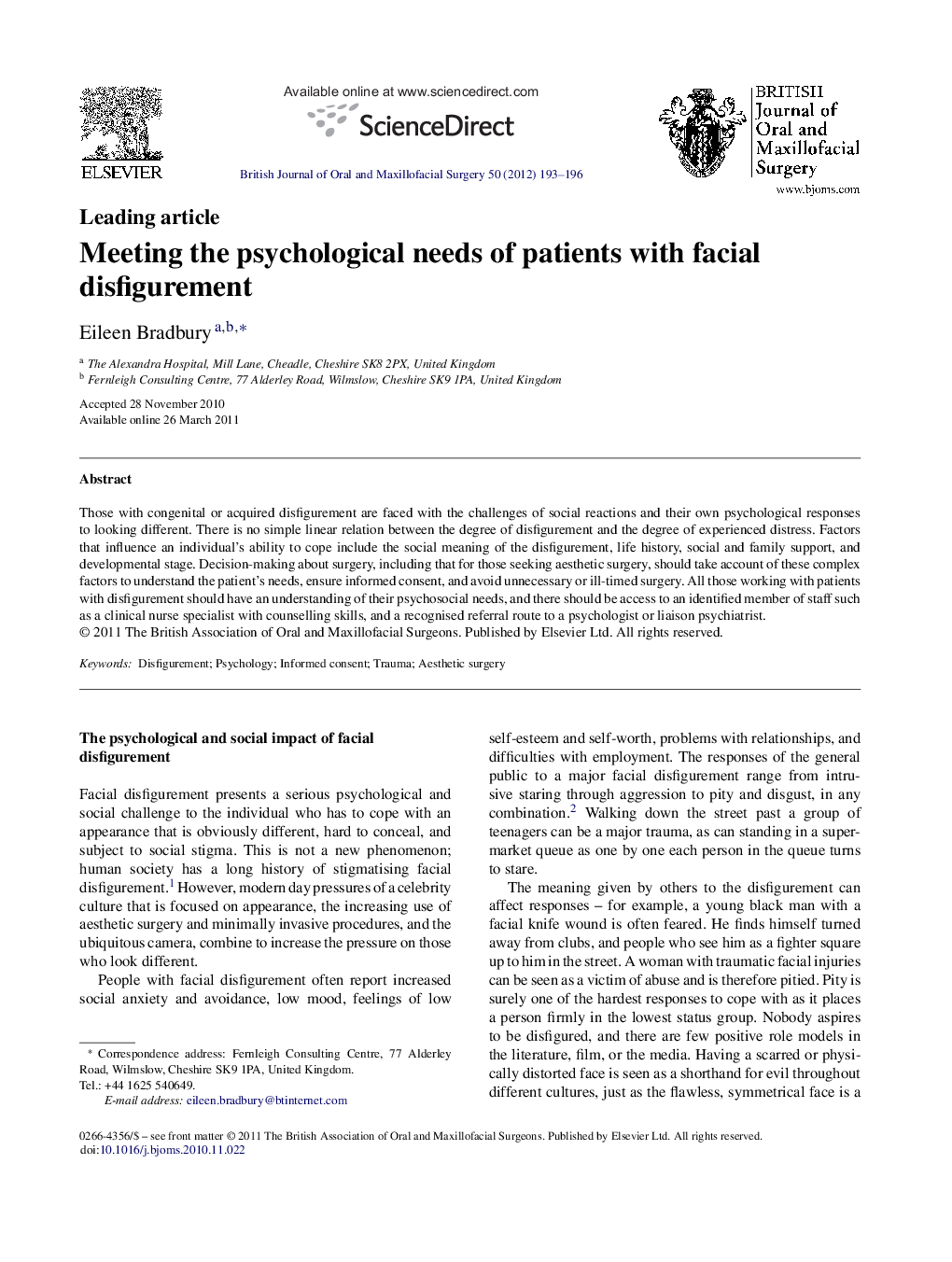| Article ID | Journal | Published Year | Pages | File Type |
|---|---|---|---|---|
| 3124282 | British Journal of Oral and Maxillofacial Surgery | 2012 | 4 Pages |
Those with congenital or acquired disfigurement are faced with the challenges of social reactions and their own psychological responses to looking different. There is no simple linear relation between the degree of disfigurement and the degree of experienced distress. Factors that influence an individual's ability to cope include the social meaning of the disfigurement, life history, social and family support, and developmental stage. Decision-making about surgery, including that for those seeking aesthetic surgery, should take account of these complex factors to understand the patient's needs, ensure informed consent, and avoid unnecessary or ill-timed surgery. All those working with patients with disfigurement should have an understanding of their psychosocial needs, and there should be access to an identified member of staff such as a clinical nurse specialist with counselling skills, and a recognised referral route to a psychologist or liaison psychiatrist.
